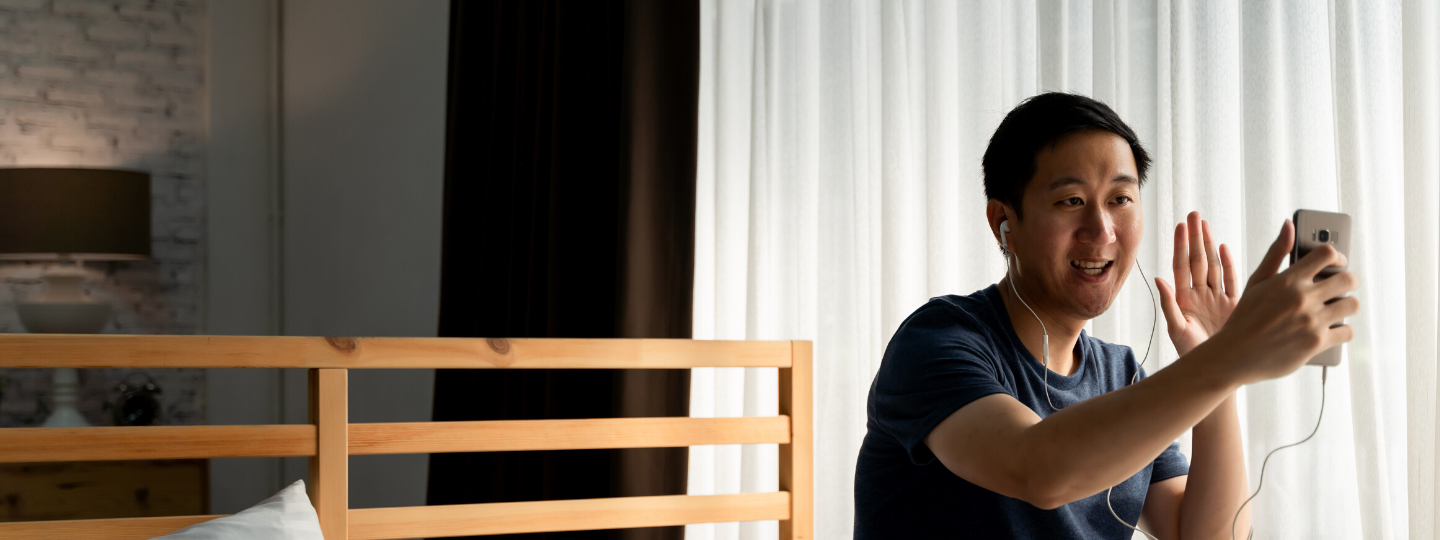Feeling anxious as society reopens
Feeling anxious as society reopens
Friday, 20 August 2021
Lockdown life since March 2020 brought about many changes for all of us. The easing of restrictions may be very welcome but can bring some feelings of anxiety along with them.
One of the biggest changes for the last year was our social interactions. The on-again off-again seeing people outside the home, led to some creative ways to stay connected. But, it has been a challenge for many to not be able to visit their support systems.
Lockdown and anxiety
Research by Jigsaw and UCD has shown that anxiety among young people has been increasing over the past few years. The onset of the pandemic has thrown up additional stresses and concerns.
For some of us, anxiety has increased as a result of lockdown. The phases of easing the Covid-19 restrictions, can bring up new feelings of anxiety.
The restrictions provided us with relief from social pressures. We heard this was especially true for those who experience anxiety in social situations. No more fears of being judged on your outfit or worrying about where to sit at lunch. Covid-19 inadvertently gave us a valid pass on anxiety provoking social situations.
Many of us have settled into new routines. With more time to explore hobbies and sleep (!) many of us are feeling a relief from our day-to-day stresses. This is why the idea of lockdown ending can be so jarring.
Below, Aisling and Shauna, volunteers from Meath tell us how they deal with uncertainty.
The next phase
The news is flooded with questions about society opening up again. Uncertainty of what this looks like can increase worries and fears. The idea of socialising again can be overwhelming for those who found it difficult previously. Additionally, more of us might be experiencing anxiety for the first time at the thoughts of reintegrating with society.
Things to look out for as society reopens:
1) Previous anxieties may become heightened again.
Anxiety in social situations can start immediately before an outing. or there can be weeks spent worrying about it. This can make it easy for thoughts to spiral and cause panic and dread.
Conversely, you may notice that social anxiety is highest after seeing others. For example, you might be spending a lot of time ruminating about how you looked or what you said.
2) There may be new anxiety around the practicalities of seeing people again
Never before has there been such an imposed gap in social contact. Without seeing friends regularly, our inner critic may have convinced us that we’re no good in social situations. Many of us will feel “out of practice” with social skills.
Managing new ways of behaving and interacting with our rusty social skills will be tiring. Acknowledging that it will be difficult for everyone can help us to plan, normalise, and cope. Remember that anxiety is temporary!
3) Anxieties about health and social situations can collide.
With Covid-19, fears about becoming unwell increased. Some of this anxiety has been helpful, encouraging social distancing and hygiene measures.
But, it can understandably make us nervous about seeing others again. Fear around contracting or spreading the virus can increase once we’re outside of our bubbles. We may not know about who else our friends have seen, and if that puts us at risk. Or when we do see them, that not everyone is following social distancing rules.
Below, Daniel and Amina, volunteers from Meath, tell us how they deal with the unknowns right now.
Preparing for the next phase
It’s OK to be selective and only spend time with those you feel comfortable with. Emotions are contagious too! Make sure you’re hanging out with people that don’t ramp up self-consciousness or health fears. As Covid-19 has dominated a lot of our conversations, where possible take a break from talking about the pandemic. Focus on other elements of each other’s lives.
Go at your own pace
Allow yourself an adjustment period. We’ve had to make big changes, a few times. New routines can often be difficult and can take a while to accept. How long this takes can be different for everyone.
What is making you feel anxious exactly? Try to set goals linked to these to help you build up confidence and get back out there.
Focus on areas of control
Anxiety can peak when we feel unsure or uncertain, so continuing to follow the clear HSE guidelines for preventing the spread of the virus can allow us to feel in control. Accept that some things, such as the lockdown lifting, are outside of your control.
However, you can control who you see, in what context and your plan of action for getting back into things.
Check your thoughts
Remember, thoughts are not facts! Are your thoughts constructive or are they contributing to worry? You can become aware, pause and challenge unhelpful thinking to stop the cycle.
Watch how social media is making you feel. Take control of it by muting people or keywords that make you feel anxious.
Mind yourself
A shift in routine can be stressful and tiring, so take care and be kind to yourself. Relaxation, mindfulness or grounding techniques can help with the feelings of anxiety. They are most effective when practiced regularly and before anxiety starts.
>> Listen as Leona talks through a technique for grounding.
Looking after your physical health is good for your mental health too. Getting good sleep and eating a balanced diet helps your mood. Lots of different types of exercise can be done with others while social distancing







